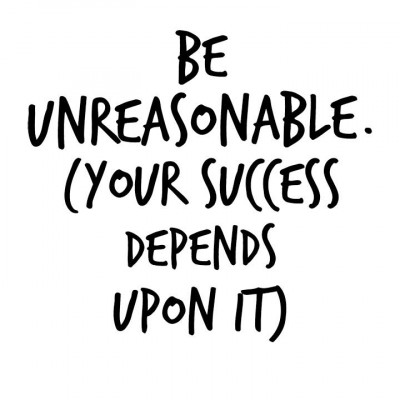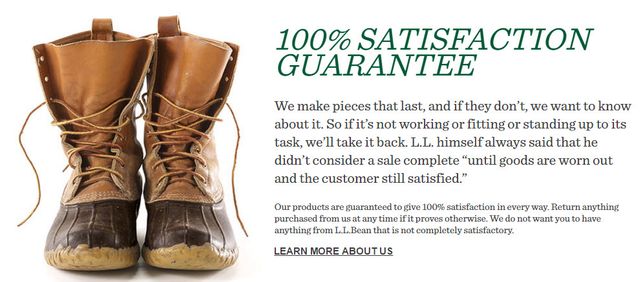 In at least one sense, business owners view prospective customers rather oddly.
In at least one sense, business owners view prospective customers rather oddly.
When it comes to making guarantees, they worry that customers will be blatantly unfair, and even dishonest.
They expect customers to abuse and exploit their guarantees.
So they layer on fine print, neutering the guarantee of any power to attract.
On the other hand, business owners also expect customers to be reasonable in their desires and expectations.
After all, it’s unreasonable to expect the business owner to have guys sitting around, just waiting for you to call, so that he can send them out on a moment’s notice.
It’s reasonable to expect a home-service company to not be able to schedule you until the next morning when you call at, say, 6:00 pm about a broken AC, plumbing problem, etc.
And it’s similarly unreasonable to expect restaurants to have hot food just waiting around for you.
The reasonable expectation is that they’ll make your food when you order, while you wait, perhaps while drinking a beverage.
And it’s reasonable to expect that stuff you order online will take a standard 3-5 days to ship to your door.
I could go on, but you get the picture.
Millions of businesses have done alright by meeting reasonable standards and offering fine-print-laden guarantees.
But that’s not the way of empire builders and market-dominating giants.
Those guys do the exact opposite.
They expect the vast majority of customers to be honest and fair about guarantees, but entirely unreasonable in their desires.
McDonald’s became McDonald’s by meeting customers unreasonable demands for hot, tasty food available right now.
Amazon’s revenue went exponential when they decided that free, 2-day shipping should be standard for their Prime Customers.
And a whole host of companies — from L.L. Bean to Cabella’s to Craftsman to Costco to Orvis — have built their name on no-fine-print, 100% Satisfaction Guarantees.

To be clear, some customers DO take advantage of those guarantees.
And those companies have to budget for it.
Wizard Partners call it the “knuckle head factor” and typically advise clients to budget for 3% of their customers potentially abusing the guarantee.
In truth, the percentage almost always ends up being far less.
But, yes, L.L. Bean would occasionally have a customer use a backpack or a pair of boots for a decade, only to bring it back and claim dissatisfaction.
And L.L. Bean would honor their warranty, writing off the knucklehead factor as a price of offering a condition-free guarantee.
Because the attraction power of an unconditional guarantee easily outweighs the cost from knuckle-headed abuse.
So, if you wish to continue puttering along, doing merely alright, by all means, continue to see customers as unfair but reasonable.
But if you wish to join the company of giants and empire builders, start seeing them as fair and unreasonable.
The choice is yours.
P.S. I am aware the L.L. Bean has recently amended their guarantee to limit returns to within one year of purchase. The point isn’t that they’ve changed. The point is that they built their empire with the old guarantee (as have many others before and after them) — and might well end up losing their empire by playing games with their guarantee now
- Are You Paying for Too Much for the Wrong Keywords? - July 15, 2024
- Dominate Your Market Like Rolex — 4 Powerful Branding Lessons - July 3, 2024
- Military-Grade Persuasion for Your Branding - June 25, 2024
